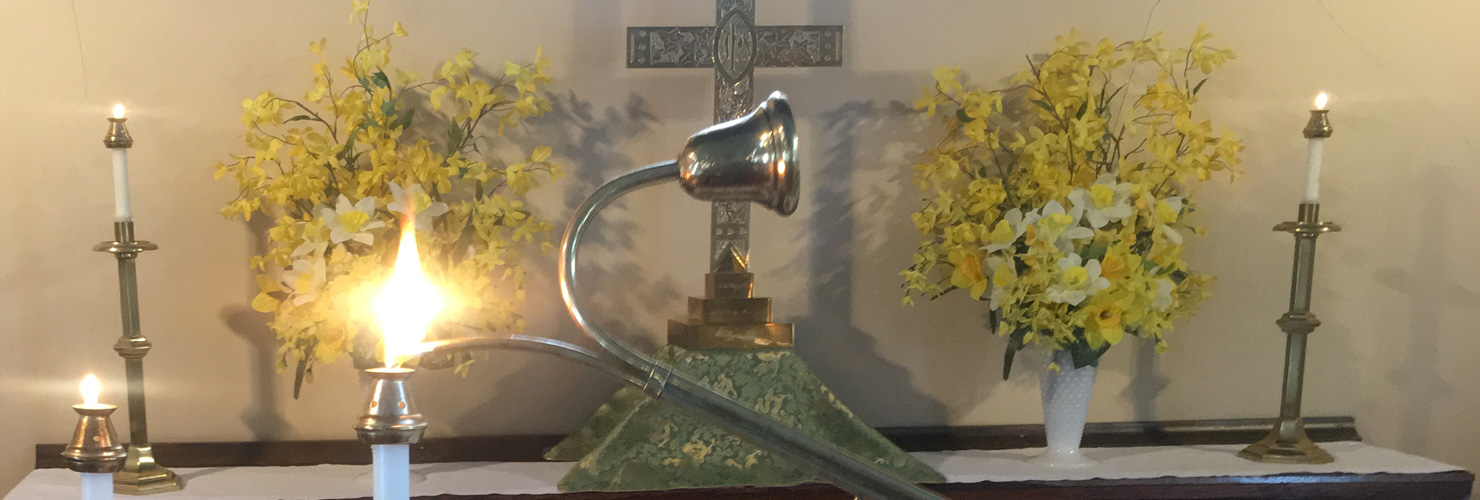“I Want to See”
A sermon by guest pastor, Rev. Charles Kamano
(Mk 10:46-52)
Blindness is such a serious handicap, whether you are born blind or become blind. But the worst kind of blindness is spiritual. It is the failure or, worse, the refusal to see God in the countless works of His creation. It is often and rightly said that a blind man may still have the possibility of seeing. But a man with good eyes who refuses to see surely cannot see. Let me elaborate further on this with a story.
A little girl was on a plane flying to a distant location. As she was about to begin reading from her book, a man sat beside her. The man immediately started a conversation: “Hey, little lady, it looks like we will be together in this plane for the next eight hours. Do you want to talk and make this flight more interesting?” The little girl lifted her eyes from her book and nodded. She said to the man, “And what would you like to talk about?” “Oh, I am not sure,” said the man. “But you see, I’m an atheist. How about if we discuss why there is no God, or no Heaven or Hell, or no life after death?” “Okay,” she said. “I’m interested. But before we begin, let me first ask you a question.” “Go ahead,” the man said, “I’m listening.” The girl said, “A horse, a cow, and a goat all eat grass, right. Yet a horse produces big clumps, while a cow discharges a flat patty, and a goat excretes little pellets. Can you explain why that is?” The atheist was visibly surprised and said, “Oh! I have no idea.” The little girl quickly delivered her final blow: “And you think you are qualified to discuss why there is no God, or no Heaven or Hell, or no life after death, when you don’t know shit?” Then she went back to her book. Failure or refusal to see God in the countless works of His creation is the worst kind of blindness in life.
This Sunday, the Gospel narrates us the story of a blind beggar. Unlike the man in the story, Bartimaeus was suffering from a physical blindness for no fault of his own. People looked down on him simply because he was blind. In those days it was the belief of many people (Jews) that sickness and physical defects, such as blindness, are punishments due to sin. This must be the reason why he was called Bartimaeus. Literally, it comes from the Aramaic, which means “son of defilement” (tame’). But in the Greek version, this name means “son of honor” (time’). By giving the name Bartimaeus with its double meaning, St. Mark, must be saying that here is someone who is supposed to be a man of honor and dignity (time’) but living in a state of dishonor and shame (tame’).
Despite his physical handicap, Bartimaeus had a powerful sense of perception and sensitivity. He heard about the coming of Jesus from afar. He also had powerful spiritual sight. Despite being blind, he had a better sight than the disciples and the rest of the crowd. He shouted: “Jesus, Son of David, have pity on me!” Even before encountering Jesus, Bartimaeus already “saw” him as the true Messiah. After this brief encounter with the Lord, he not only received his sight, but most importantly, he regained his great dignity as a child of God and follower of Jesus.
The story of Bartimaeus is the story of each one of us. God created us to be His sons and daughters of honor and dignity. But it is our sins of pride and self-centeredness that usually make us blind. We are blind to the presence of God because we are consumed by the pursuit of our selfish ambitions. We fail to see and appreciate the many blessings we have because we want and crave for more.
We have an avid appetite for material things and our thirst for power and praise is unquenchable. We refuse to see the goodness and giftedness of others because, in our pride and arrogance, we think we are the best, the first and the greatest.
We choose to ignore our own sins and weaknesses because we have grown used to our hypocrisy and lies. We cannot see and read the signs of the times because we believe the world revolves around us. We live in complete darkness because of our pride and selfishness.
Let the Gospel today open our eyes, so that we can see the Goodness in each other. It is a call to repentance and conversion. It is time to be bold in prayer. Bartimaeus obviously can teach us. Here is a person who knows what he wants and goes after it under all cost, no matter how much criticism he earns from the audience. It is important for all of us to throw aside our cloaks of false comforts and delusions, rise and stand with honor and dignity, and come to Jesus who is meek and humble of heart.
Let the prayer of the blind beggar, Bartimaeus, be ours. His story is our story: “Jesus, Son of David, have pity on me. I want to see!” As Christians we love to sing Amazing Grace: How sweet the sound that saved a wretch like me! I once was lost, but now am found; was blind, but now I see. Blind, blind to the promise of eternal life, blind to the provider of life. We relate to the words of Bartimaeus, “One thing I do know. I was blind but now I see!” Amen.

